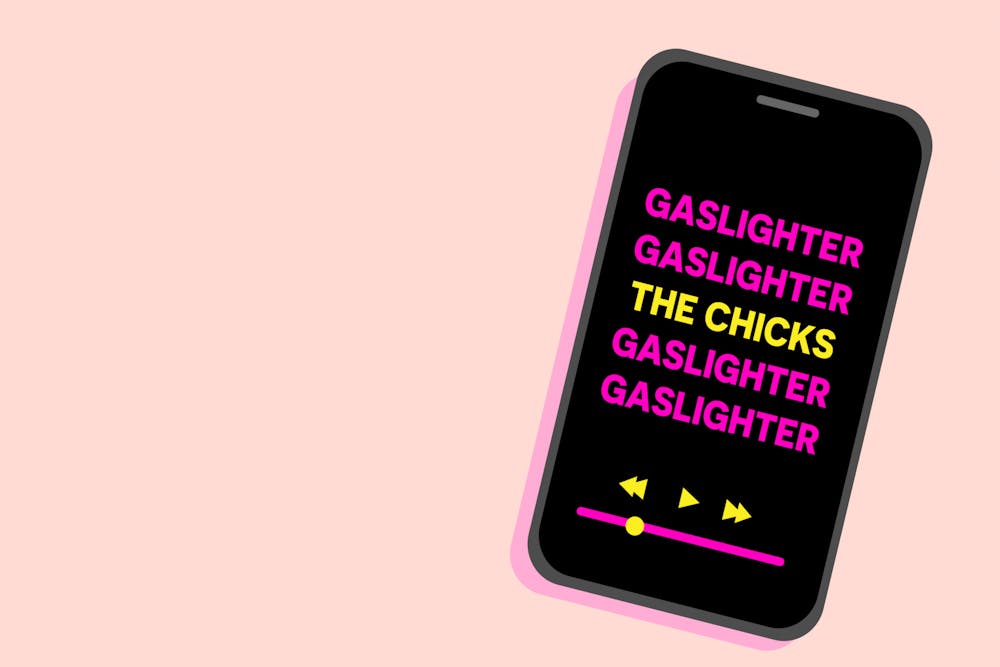The Chicks, composed of lead singer Natalie Maines and sisters Martie Maguire and Emily Strayer, were cancelled. Emphasis on the word "were": before the term became ubiquitous in social media vernacular, the trio faced backlash in 2003 for Maine's critical remarks of President Bush eight days before the U.S. entered the Iraqi War. Her simple expression that she was "ashamed" Bush was also from Texas at a London show sparked outrage among country fans. Radio stations arranged for protests burning the band's CDs, and their discography was banned from airplay itself. The women were called traitors and "Saddam's Angels." In response to the controversy, The Chicks released 2006's Taking the Long Way, with the bitterly defiant hit "Not Ready to Make Nice." Taylor Swift, a recent collaborator and clear successor of the the Chicks, has said that she was told not to be like them.
After this "cancellation," the band went silent. Each member went their own way, releasing solo albums and raising their families, until they re-united again in 2016 for a reunion tour. On this tour, Gaslighter was born. The record, the group's first in 14 years, weds the moral outrage of women who have been told to "shut up and sing" at every turn in the industry with bright, irresistibly catchy pop melodies, all in a slick contemporary country package. Gaslighter reflects the significant changes that have occurred since the Chick's last album, like Natalie Maines' divorce and the 2016 election, deftly weaving the women's personal stories into an urgently political and presciently feminist statement of resistance. Part of the genius of Gaslighter, indeed, is in that the music just sounds good, as much as the content of the lyrics shares painfully personal and political content.
The songs themselves swing from uplifting anthems of resistance (the title track, "March March," "For Her") to heartfelt ballads of pain and trauma ("Everybody Loves You," "Hope It's Something Good") to bitter songs of retribution that sound sweet to the ears ("Sleep at Night," "Tights on My Boat"). Jack Antonoff, who co-produced and co-wrote the record with the Chicks, lends his signature sound to the album, and St. Vincent offers guitar contributions to "Texas Man" and songwriting skills on "Young Man."
If there's any one message that rings clearest on Gaslighter, it's the necessity for women's emotional and bodily autonomy. "Everybody Loves You" poignantly documents the trauma of emotional and physical abuse at the hands of a man who is well–loved in his community, paralleling Stevie Nicks abuse at the hands of her ex. "Julianna Calm Down," named after one of nieces of The Chicks, offers practical, confident advice to women who have suffered at the hands of similarly violent men. "For Her" sees Natalie Maines asking her husband to do the emotional labor to be better and support their daughter while the couple is going through a rough patch. "March March," culminates the politics of the record, inspired by the Chicks' participation in the March For Our Lives and the Women's March, the song is made even more prescient in light of the #BlackLivesMatter protests, in the middle of which it was released.
Despite the heavy ground covered, these songs don't weigh down the lighter cuts. "Sleep at Night" and "Gaslighter" sound destined for radio play—they're as effortless and cheerful as they are accusatory, like a warm summer breeze carrying a swarm of vengeful bees.
Though pain often drives the record, even on lighter cuts, the Chicks still find room for joy and love. "Texas Man" is flirtatious and witty in its comparisons of modern dating to late-stage capitalism. Maine sings, "Everybody wants new markets, but I'm a little bit unraveled".
The final few songs on the record, which lay out in plain terms the emotional devastation these women have experienced since their last record, are also some of the best. On "Hope It's Something Good," they say goodbye to their cheating husbands. No doubt this was inspired by Maines' divorce, and on the closer "Set Me Free," they ask, poignantly, to let go of everything that keeps them tied down, including the emotional labor and toil of failed domestic life. Gaslighter, in its willingness to both call out and uplift, is a revelatory piece of feminism art for in a year that is constantly throwing curveballs.







